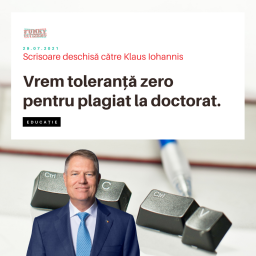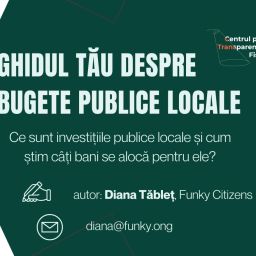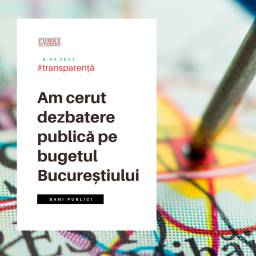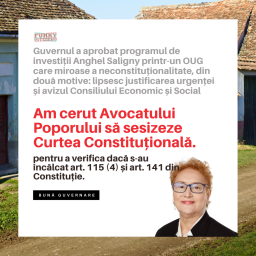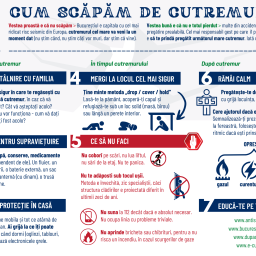UPDATE: Mayor Nicușor Dan has answered in the affirmative and told us he would propose the award of the Title of Excellence in the next General Council meeting.
To: The Mayor of Bucharest, Mr. Nicușor Daniel Dan
Mr. Mayor,
In accordance with the provisions of the Regulation on awarding distinctions in Bucharest (annex to HCGMB 213/2018), we, the organizations and signatories, address this open letter requesting the award of the Title of Excellence (post-mortem) to engineer Gheorghe Ursu.
As you know, Bucharest and the people of Bucharest owe a lot to Gheorghe Ursu, who was the one who, after the 1977 earthquake, warned the city population about the still existing danger of seismic vulnerability. More specifically, he denounced, in a letter sent to the Free Europe radio station, the fact that, after the 1977 earthquake, thousands of buildings were left unconsolidated (or even unrepaired) by the direct order given by Nicolae Ceausescu during the meeting in July 4, 1977. Thus, those buildings remained vulnerable to a great future earthquake. It is no coincidence that today, almost 45 years after March 4, 1977, much of the problem of seismic risk in Bucharest is represented by the buildings to which Gheorghe Ursu referred, without explicitly naming them, in the letters its. Many of them are still on the lists of expert buildings, being classified in classes I or II of seismic risk, or in one of the 3 categories of emergency. Gheorghe Ursu tried to warn us that these buildings were left vulnerable, and for this he paid with his life, ending in unimaginable torment on November 17, 1985. In the last weeks of his life, he was subjected to a regime of torture due to the fact that he refused to give up these letters, preferring to give his life rather than indulge in the weather and retract the accusations he had made against Nicolae Ceausescu. For more details about the Gheorghe Ursu case and his gesture, I have attached a short story as an appendix to this letter.
Therefore, under the conditions of the above-mentioned Regulation, and in particular with reference to Article 2, points (d) and (f), which specify that honorary titles are granted (d) to persons whose activity has been closely linked to city life, and ( f) military or civilians who have distinguished themselves by acts of bravery, worthy of entering the history of the city, please analyze our request to propose the award of Excellence to Engineer Gheorghe Ursu - in essence, the hero of seismic risk reduction in Romania. Through his gesture, he showed not only a clear concern for the life of the city and its inhabitants, but also showed extraordinary courage, a true heroic attitude, when subjected to a regime of torture he refused to renounce his gesture. He thus preferred to undergo horrible torments, only to trigger this alarm signal - an alarm signal unjustly ignored for decades, as well as the problem of seismic risk in Bucharest and Romania.
We therefore have the opportunity to contribute to the correction of a historical injustice and we count on your support to achieve this. Gheorghe Ursu was a true hero of Bucharest.
Regards,
Organisations and representatives
- Fundația Gheorghe Ursu, prin Doina Lazăr
- Asociația 15 noiembrie 1987 Brașov, prin Marius Boeriu, președinte
- Asociația 37
- Asociația ARCEN, prin Alberto Groșescu
- Asociația CivicNet, prin Ionuț Popa
- Asociația Clubul Câinilor Utilitari, prin Alina Cheroiu și Vlad Popescu
- Asociația Expert Forum, prin Laura Ștefan, director executiv
- Asociația Funky Citizens, prin Cosmin Pojoranu și Elena Calistru
- Asociația Geeks for Democracy, prin Marian Rădună, președinte
- Asociația geo-spatial.org, prin Marius Budileanu și Vasile Crăciunescu
- Asociația Grow-up Romania
- Asociația Inginerilor Constructori Proiectanți de Structuri, prin Lucian Melinceanu
- Asociația Make Better – MKBT, prin Mihai Șercăianu și Bogdan Suditu
- Asociația NOD Makerspace
- Asociația pentru Reducerea Riscului Seismic – Re:Rise, prin Rudolph Mihaiu, Ciprian Spătaru, Matei Sumbasacu și Mihai Florin Voicu
- Asociația Studio Zona, prin Andrei Răzvan Voinea, cercetător, ICUB
- Fundația Academia Civică
- Fundația Comunitară București, prin Alina Kasprovschi și Ilinca Apetrei
- Fundația Culturală Memoria, prin Nicolae M Constantinescu și Cosmin Budeancă
- Grupul Floreasca Civică
- Grupul pentru Dialog Social, prin Andrei Cornea
- Institutul Național de Cercetare – Dezvoltare pentru Fizica Pământului – INCDFP
- Liga Pro Europa, prin Smaranda Enache
- Muzeul Ororilor Comunismului, prin Alexandru Groza și Irina Hasnaș-Hubbard
- poster x poem, prin Dan Stănescu și Ioana Diaconu
- Redacția Epoch Times, prin Adrian Sturdza și Nicoleta Savin
People, in their own name
- Andrei Ursu
- Adrian Florescu, radioamator voluntar, RVSU – EmComms
- Adrian Mihălțianu, Director Editorial PressOne
- Adrian Niculescu, vicepreședinte IICCMER
- Adrian Șerban, director editorial Polirom
- Alexandru Gussi, politolog
- Alexandru Solomon, cineast
- Ana Blandiana, scriitor, poet, eseist
- Ana Derumeaux, director, Crucea Roșie Română Filiala Sector 6
- Andrei Oișteanu, scriitor
- Brîndușa Palade, profesoară, scriitoare
- Cristian Pîrvulescu, analist politic, jurnalist
- Dan Perjovschi, artist
- Delia Moleș, Manager Proiect Crucea Roșie Română Sector 6
- Domnica Macri, jurnalist
- Dorothee Hasnaș, arhitect, Heritage advisor Ordinul Arhitecților din România
- Eugen Ciurtin, istoric
- Florentina Nițu, decan, Facultatea de Istorie – Universitatea din București
- Gabriel Andreescu, profesor universitar
- Georgiana Ilie, jurnalist
- Gianina Buzea, cercetător
- Iulia Motoc, judecător CEDO
- Lavinia Stan, profesor universitar
- Liviu Antonesei, scriitor
- Liviu Mihaiu, jurnalist
- Liviu Tofan, jurnalist, autor de cărți și filme documentare
- Luiza Zamora, manager cultural
- Magda Cârneci, scriitor
- Matei David, arhitect
- Mihaela Miroiu, politolog, scriitor
- Mihai Dinu Gheorghiu, sociolog
- Mihai Șora, filosof
- Radu Bogdan, profesor universitar
- Radu Polizu, cineast
- Radu Văcăreanu, rector Universitatea Tehnică de Construcții București
- Sorin Alexandrescu, istoric literar, critic
Annex - The case of Gheorghe Ursu, in brief
Four months after the 1977 earthquake, Ceausescu gathered construction officials, including the heads of consolidation sites in Bucharest, and ordered them, threatening the militia and the prosecutor's office, to stop "any major repairs" to the affected buildings. The only interventions that would be allowed were cosmetic repairs and only in areas with visible defects.
For Gheorghe Ursu, this was unacceptable.
Project leader of the consolidation of the Patria Bloc, out of that meeting, outraged, as his notes show, and later declares that he will wear two pillars in addition to what he was allowed, even if it would be necessary to pay from his salary for this, as even a summary document of the State Security Department at the time shows.
His request is denied, the regime imposes its will and the works on the Patria block, as well as on many other buildings in Bucharest, are stopped prematurely. The repairs are incomplete, and there can be no question of consolidations. The superficial coating methods of the cracks came to be known, in a note of black humor, as "anti-seismic plasters". People who are worried about the condition of the buildings after the earthquake are answered with "positive influence", as evidenced by weather reports and the system is slowly becoming quiet.
Only Gheorghe Ursu was not going to give up.
Feeling morally obliged, as he himself would declare during the investigations, to the people in the buildings and to his own conscience, Gheorghe Ursu writes an article and manages to broadcast it to Radio Free Europe.
His letter was to be read on the post commemorating the 2-year commemoration of the earthquake, and it speaks both about the insufficient level of interventions after 1977 and about the way in which, on July 4, 1977, Ceausescu practically forbade the reasonable consolidation of affected buildings.
After many years of unanswered investigations, in 1985, once he found his diary with anti-system notes, the Securitate intensified its investigations in the case of Gheorghe Ursu. He admits quite quickly that he is the one who sent the letter to Free Europe, but he refuses to pour out his friends and, above all, he refuses to give up the contents of that letter. In order not to give the impression of a political police case, he is finally arrested under the pretext of holding the sum of $ 17.
In the arrest of the militia, Gheorghe Ursu is tortured for almost 2 months, both by the Securitate investigators Pirvulescu Marin and Hodis Vasile, as well as by two cellmates - common law criminals who had the role of informal interrogators. They were instructed to extract information from their cellmate and have him renounce his letter by any means.
Gheorghe Ursu died on November 17, 1985, following the blows received two days before, during a last interrogation of his investigator, Major Pîrvulescu Marin. From that investigation, Gheorghe Ursu was brought back to the guards' cell in a blanket. His torturers and the main culprits in his death - security personnel - remain unpunished to this day. The truth, however, remains and must be told.



